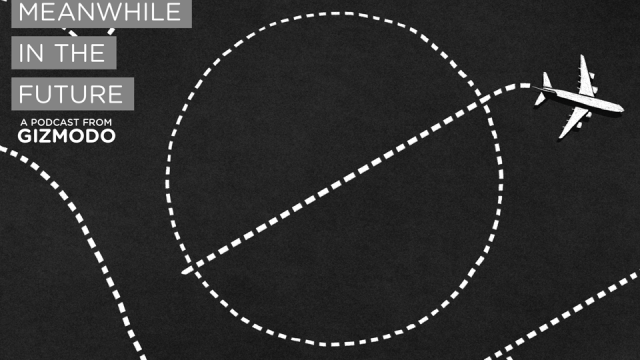Need to get from New York to Paris? Or San Diego? Chances are, you’re hopping on a plane. But commercial flights aren’t just annoying and expensive — they also input a ton of carbon into the environment, contributing to climate change. So what if we stopped flights to save the planet? What would happen next?
In this week’s future, we’ve limited commercial air travel to emergency situations only due to concerns over carbon emissions.
If you fly from New York to Europe and back, you’re responsible for a warming effect that’s the equivalent of 2 to 3 tons of carbon dioxide. To put that into perspective, the average American generates 19 tons of carbon dioxide every year. Air travel doesn’t account for the majority of global warming in the world — scientists estimate that it’s responsible for about 5 per cent. But it is a really easy thing to target.
Just last month, the EPA said they would start regulating the greenhouse gas emissions from America’s commercial aircraft. What those regulations will look like is still unclear, but since we’re in the business of coming up with fantastical scenarios, let’s pretend they decided to cut down severely on the total number of commercial flights available.
To sort out what might happen next I called two pretty different people. The first is Kim Stanley Robinson, a science fiction writer and the author of books like the Mars trilogy, 2312 and, most recently, Aurora, in which humans take a Noah’s Arc like spaceship to colonize a new planet. A lot of his books deal with the long term ramifications of our current environmental crises, and he was pretty much in favour of shutting down flights entirely. The other is Matthew Zook, a professor of geography at the University of Kentucky and, this year, the state geographer for the commonwealth of Kentucky. (I asked him what that job entails, and he admitted that so far it has not really meant anything, but if the border of Kentucky suddenly starts to expand, Zook should be suspect #1.)
Robinson and Zook have pretty different ideas about what this world might be like. Robinson imagines it as a step towards a better world, where things move more slowly. He excitedly talked about a world like the one described in the book The Twenty-One Balloons, a 1947 children’s book in which the hero drifts along on a platform held up by 21 balloons.
Zook is a little more sceptical. He raised questions like: how will politicians be able to come to D.C. to vote and also spend time in their districts? Will people really spend five days on a boat or train to get somewhere they only want to visit for two? What will happen to conferences and business meetings? Will places like the United States, where isolationism already runs deep, fall deeper into a fear of foreigners?
All that and more this week!
Also! Since this is our 10th episode, I made a little bonus surprise for you all. It’s a snazzy timeline of all the Meanwhile in the Future episodes. Check it out.
Illustration: Jim Cook
